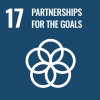Raising Awareness of Ethical Recruitment and Risks of Forced Labour in Central Asia
Bishkek, Kyrgyzstan – Understanding the risks of forced labour and benefits of ethical recruitment in international supply chains is the foundation for taking action to ensure migrant worker protection. To this end, the International Organization for Migration (IOM) hosted a two-day workshop on “Migrant Workers’ Recruitment and Orientation” for government representatives from several countries in Central Asia.
There are up to 555 cases of forced labour between 2015 and 2019 in the Central Asian region. These labour migrants are usually uninformed and are not provided with support upon arrival to their destination country, making them extra vulnerable to exploitation. Yet, they have no other choice but to travel and do a job as necessary means for survival of the migrants and their families.
Therefore, the goal of the workshop was to enhance the understanding of drivers of migration and to identify major issues and challenges in the field of labour migration in Central Asia. Through active discussions, cooperation between the regional governments, private recruitment agencies and other key stakeholders was strengthened. “The training […] was timely and relevant for representatives of state bodies and private employment agencies in the region. Migrant workers, as a vulnerable group, are often one of the main sources of income for most families in Central Asia. It is important to note that public authorities are increasingly facing the consequences of unscrupulous employment agencies that expose migrant workers to both financial and physical risks” said Mrs. Elnura Omurkulova-Ozierska, Director at the Central Asia Strategic Center for Analysis, Dialogue and Development after the workshop.
“There is a strong need to foster understanding and mainstreaming of responsible sourcing of migrant workers among businesses in Central Asia. Unfortunately, there is no such notion in place in any of the Central Asian countries at this time” explained Mr. Sanjarbek Toshbaev, the country manager for IOM in Uzbekistan.
During the training, private sectors as well as the state bodies’ needs were identified, as explained by Mrs. Elnura Omurkulova-Ozierska; “[there is] a need to reformat the activities of private employment agencies and indicate their level of responsibility in the process of employment, namely, to transform the recruitment industry into a fair system based on international ethical standards such as the IRIS standard. Public authorities, in turn, can also support private employment agencies in this process.”
Participants were introduced to IOMs International Recruitment Integrity System (IRIS), as well as the Corporate Responsibility in Eliminating Slavery and Trafficking (CREST) initiative. Based on discussions, participants defined the current context for ethical recruitment and sustainable efforts to eliminate forced labour. Finally, participants pinpointed their goal for recruitment agencies to receive IRIS certification.
“The obtained information on IRIS and CREST will allow implementing separate norms of these systems in the daily activities of the migration service,” said Mr. Tolibjon Sharipov, Deputy Head of Migration Service in The Republic of Tajikistan, and continued “IRIS and CREST offer approaches that will reduce both the financial burden on migrant workers, who belong to a vulnerable category of citizens.”
For more information please contact IOM Sub-regional Coordination Office in Almaty, Kazakhstan: Mr. Yevgeniy Khon, IOM National Program Officer: ykhon@iom.int.
The training was generously funded by the U.S. Department of State Bureau of Population, Refugees, and Migration”.























